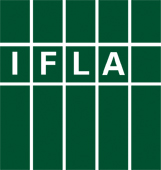 Gerald Leitner, Secretary General of the International Federation of Library Associations and Institutions
Gerald Leitner, Secretary General of the International Federation of Library Associations and Institutions
Reposted from IP-Watch, Link (CC-BY-NC-SA)
Information is the raw material for decision-making. When individuals and groups make the right choices, based on good information, their chances of taking a full role in economic, social, cultural and civic life improve. They can better create and innovate, participate in politics, find and do their jobs well, and live healthily.
Informed citizens and communities are also essential to the UN’s 2030 Agenda. We cannot have sustainable development when individuals are not able to deal with new choices and challenges autonomously, drawing on access to information. And we cannot have inclusive development, with no-one left behind, unless this access is real and meaningful for everyone.
Libraries have long sought to do this, making sure that the world’s heritage is preserved and made accessible, allowing the sharing of knowledge between institutions and across borders, and giving children, families, students and others the chance to enjoy works which they could never afford to pay for individually.
IFLA’s Development and Access to Information (DA2I) report 2017, produced in partnership with the Technology and Social Change Group at the University of Washington, underlines that access to information is as important as ever today for development. But just as important is the question of whether this is meaningful – simply having the possibility to connect to the Internet is not enough.
To do this, it both sets out a basket of indicators of how countries and regions are doing, as well as evidence of the contribution of access to information to Sustainable Development Goals relating to agriculture, health, gender equality and innovation.
Therefore 80% of the world’s population are covered by 3G networks, but less than half are online. There are also social barriers to overcome; the gender digital divide, in terms of share of women and men going online, is growing, and in only six countries do more women use the Internet than men. Poverty and low academic achievement also correlate with poor Internet access.
Individuals need the right skills and attitudes, but the ability to use productivity enhancing programmes still lags in the developing world. The reasons for using the Internet also vary, with a greater share of adults in less well-off countries using the Internet for social networking. They are more likely, however, to undertake courses online.
Finally, there need to be the right laws in place. Permissive freedom of access to information and freedom of expression are essential if people are to feel comfortable looking for relevant information for them. For over half of internet users, this is not the case.
Copyright too needs to promote access – restricting it slows progress. For example, in talking about innovation, the report highlights that open methods of collaboration between scientists in the context of the Human Genome Project allowed objectives to be reached early, and under budget.
A central chapter underlines that libraries, when adequately supported in terms of resources and legal frameworks, can play a key facilitating role, offering access to information to everyone in their committees, in smart, sensitive ways, with the support of professional and dedicated staff. They promote literacy and a love of reading, develop skills and give access to the information society.
In terms of the legal framework, copyright reforms will be necessary, in particular where libraries do not yet benefit from a minimum set of relevant exceptions and limitations to copyright. These should permit flows of knowledge across borders effectively, and allow the development of innovative new means of producing and sharing information.
In response to our own work, IFLA has seen an unprecedented level of activity among its members in support of the 2030 Agenda, with representatives of 73 countries committing to promote the SDGs, and engage in the policy and planning initiatives which will deliver it.
Passing and implementing the right laws is only one part of the picture, but it is a crucial one, and highlights the importance of the work of institutions such as WIPO and national copyright offices. The Development and Access to Information report shows the way towards faster progress towards achieving the SDGs – we look forwards to seeing governments and others follow.
Gerald Leitner is Secretary General of the International Federation of Library Associations and Institutions, where he leads efforts a team of 23 working to support the development of the library field, and advocate for their work internationally. Prior to taking up this position, he was Secretary General of the Austrian Library Association for 17 years, overseeing a major expansion in its roles and resources. He is a former President of the European Bureau of Library, Information and Documentation Associations, and former IFLA Board Member. In 2017, he received the Austrian Cross of Honour for Science and Art.




